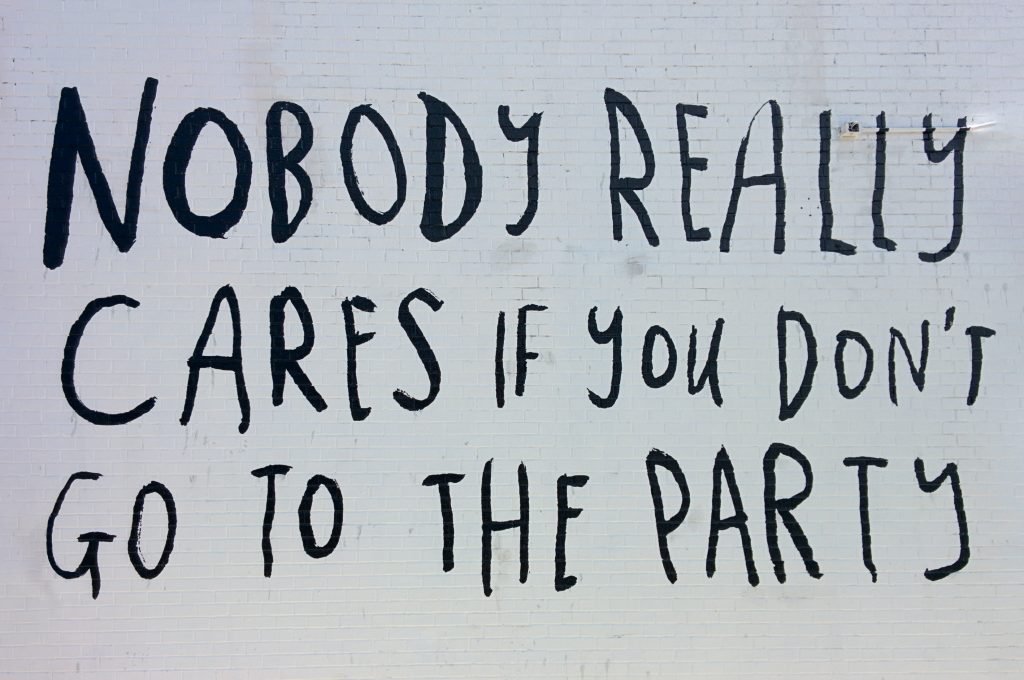In today’s hyper-connected world, a silent yet powerful force tugs at our emotions, often without our awareness. This force is the Fear of Missing Out (FOMO), a sensation synonymous with our digital age. FOMO isn’t a fleeting emotion; it’s a psychological state that can impact our mental well-being. But fear not, for understanding FOMO can empower us to regain control over our digital lives, nurture genuine connections, and find fulfillment beyond the screens.

The FOMO Epidemic: Social Media’s Dark Shadow
The prevalence of social media platforms can be contributed to the increase of FOMO. We’ve all felt it: the anxious feeling that comes with browsing through Instagram, seeing friends’ vacation photos on Snapchat, or seeing colleagues celebrate professional accomplishments on LinkedIn. These sites deliver a steady stream of handpicked highlights from other people’s lives in order to keep us interested.
The ramifications of this constant connectedness, however, are not always beneficial. Excessive social media use has been linked to higher levels of stress, anxiety, and depression in studies. FOMO tends to creep in as we spend more time connected to our screens. Fortunately, understanding the physics behind FOMO provides a powerful solution.
The Science of FOMO: What Occurs in Our Brains
Our brains are built to need social interaction. Dopamine, also known as the “feel-good” hormone, is released by our brains when we engage in social activities. This dopamine release encourages our social activities and drives us to seek out more interactions. The addictive characteristic of social media originates from its ability to tap into this brain reward system.
The brain’s reward system isn’t necessarily negative; it developed to foster community engagement. However, social media platforms have taken advantage of this system, creating an atmosphere in which our brains constantly anticipate rewards such as likes, comments, and shares. The problem is that these digital incentives are sporadic and unpredictable, heightening our need to keep scrolling and staying connected.
As we engage with social media, our brains become inundated with information. A study in the journal “Nature Communications” found that information overload, often due to excessive social media use, can result in cognitive fatigue and diminished well-being. This cognitive fatigue can exacerbate FOMO, making it even more challenging to disconnect.

Fighting FOMO: Enlightening and Encouraging Solutions
Understanding the science of FOMO equips us to make informed choices about our digital lives. Here are some enlightened strategies to combat FOMO’s negative effects:
Embrace JOMO – Joy Of Missing Out: Remember that it’s acceptable to miss certain online experiences. Embrace the Joy of Missing Out by intentionally disconnecting from social media and concentrating on activities that genuinely matter to you.
Practice Mindfulness: Cultivate mindfulness to heighten awareness of your digital behaviors and their impact on your well-being. Regularly self-reflect to evaluate your emotions when using social media.
- Mindful Scrolling: Pay attention to your emotions when using social media. Is it habit, boredom, or true interest that drives your scrolling? Mindful scrolling might assist you in determining your intentions.
- Scheduled Reflection: Make time for yourself to reflect on your internet interactions. Consider how these contacts made you feel and whether they were consistent with your values and well-being.
- Digital Detox Moments: Incorporate brief periods of digital detox into your daily routine. Disconnect from all screens and immerse yourself in the current moment, whether it’s enjoying a cup of tea or going for a brief walk.
Foster Authentic Connections:
Seek authentic, real-life connections with friends and loved ones. Plan face-to-face interactions, phone calls, or video chats to deepen your relationships.
Set Boundaries: Establish clear boundaries for your social media use. Designate specific times for checking your accounts and refrain from mindless scrolling.
Focus on Quality, Not Quantity: Prioritize meaningful interactions over the number of likes or followers. Engage with content that inspires and educates you, rather than contributing to FOMO.
Finally, understanding the science underlying the Fear of Missing Out (FOMO) empowers us to handle our digital lives more intelligently. We may break away from the shackles of FOMO and rediscover the joy of true human connections by embracing the Joy of Missing Out (JOMO) and making conscious choices about our online interactions. It’s a journey toward a more full and balanced life in the digital age, where the present moment is treasured and our well-being comes before virtual validations. Ultimately, by embracing JOMO, we not only discover serenity in the simplicity of everyday events, but we also reclaim control over our time, attention, and emotional well-being.



